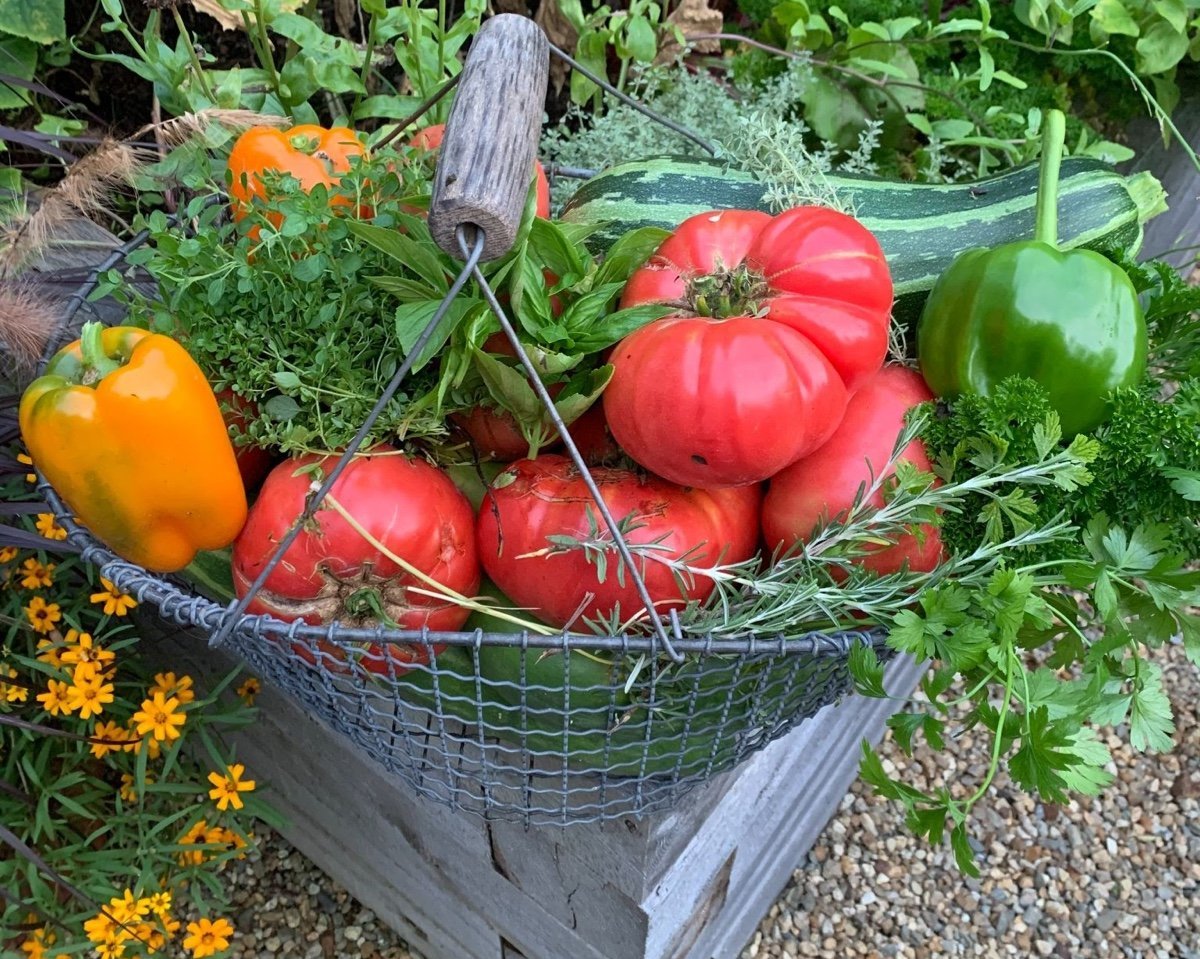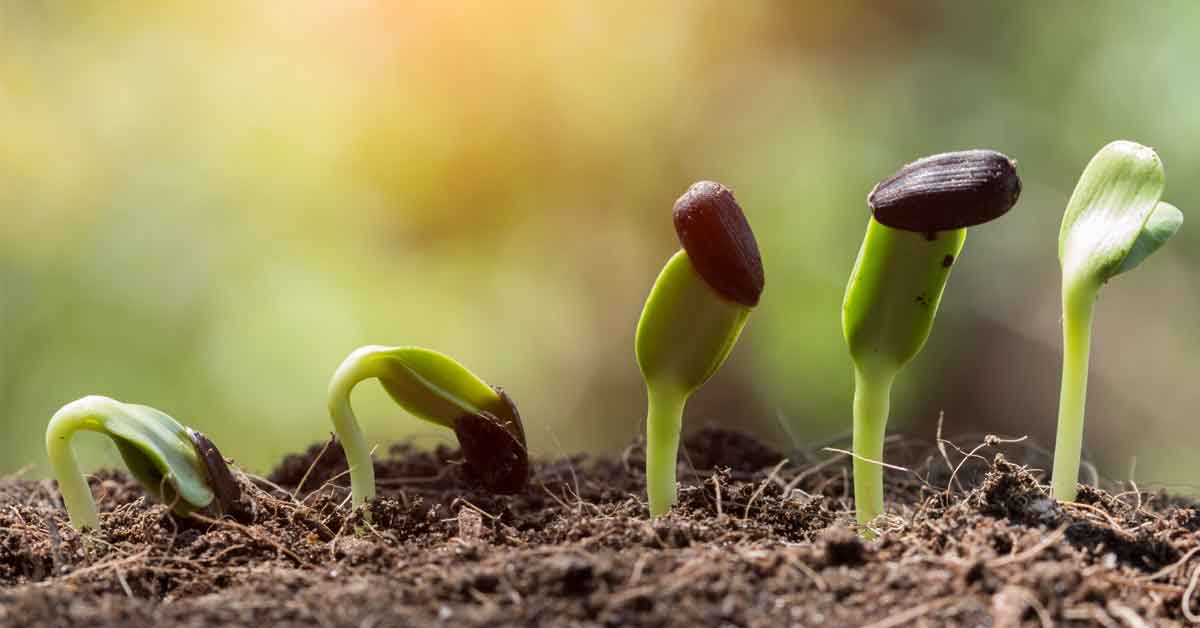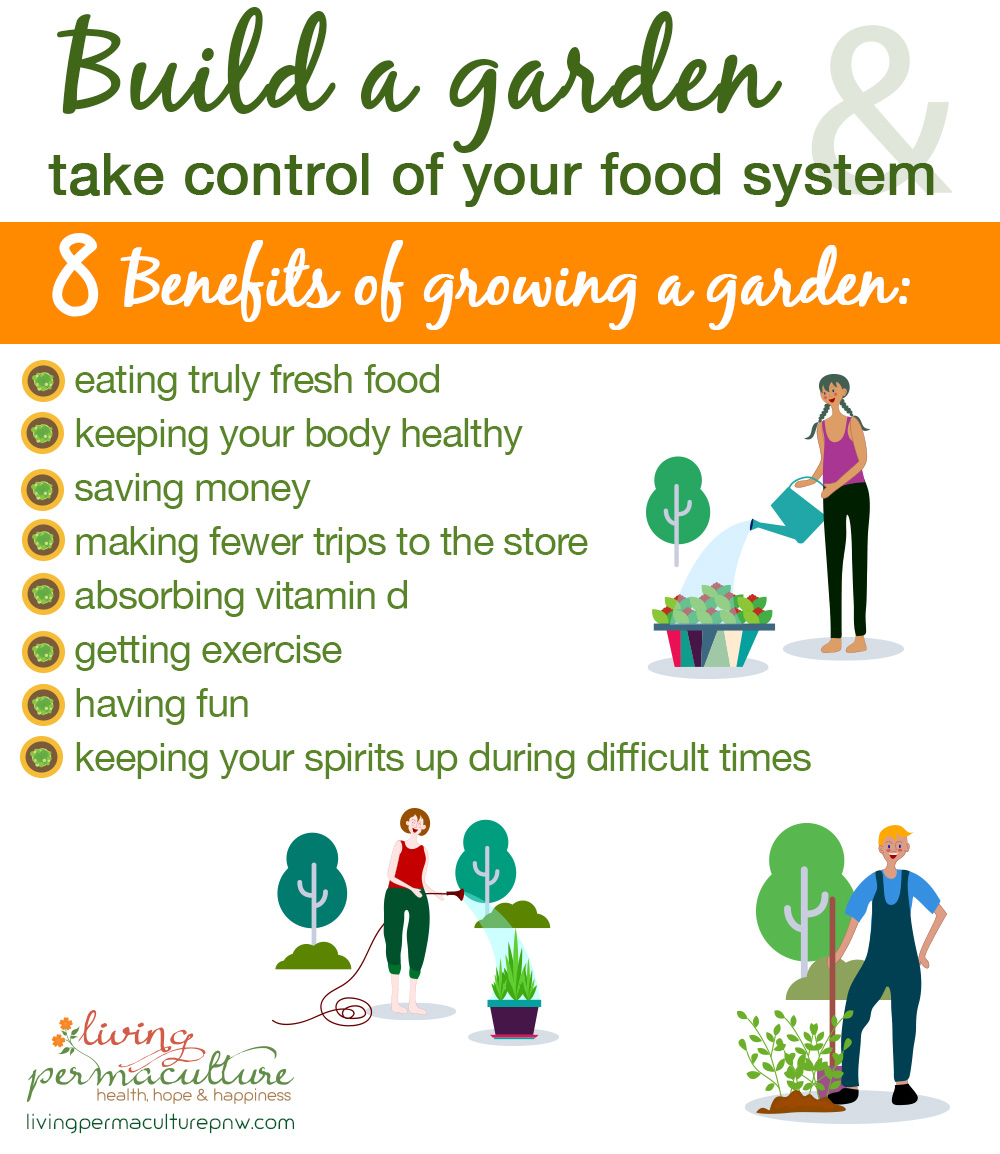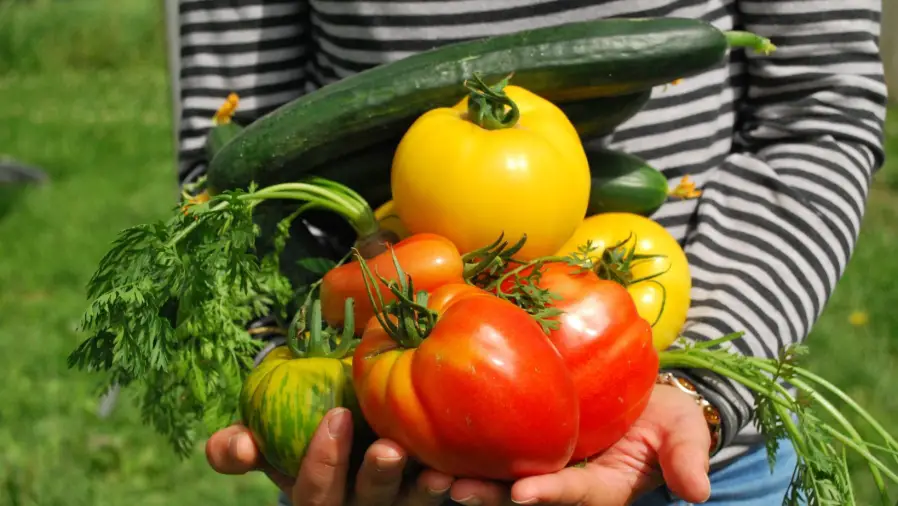Vegetable gardening offers significant health and environmental benefits. It provides access to fresh produce and reduces reliance on commercial agriculture.
Incorporating vegetable gardening into your daily life isn’t just a rewarding hobby; it’s a powerful step towards sustainability and health. Planting your own vegetables cuts down on the emissions produced by transporting food, makes for an engaging form of exercise, and gives the satisfaction of nurturing something from seed to plate.
Table of Contents
Freshly picked produce from your garden is packed with nutrients often lost in store-bought vegetables that have traveled and sat on shelves. Not only will you savor the taste of freshly harvested greens, but you’ll also have the peace of mind knowing they’re grown without the use of potential harmful chemicals. Engage in this eco-friendly pastime and watch as your backyard becomes a sanctuary for pollinators, cultivating biodiversity and fostering a connection with the natural world around you. Start your vegetable garden today and embrace the multifaceted advantages it brings to your plate and the planet.
Introduction To Vegetable Gardening
Gardening enthusiasts often find themselves drawn to the enchanting realm of growing their own vegetables. It’s a world where one can witness the miracle of life from a tiny seed to a bountiful harvest. Vegetable gardening is not just a pleasurable pastime but a gateway to sustainable living and healthier food choices. Whether you’re equipped with sprawling backyard space or just a cozy balcony, the joys of planting, nurturing, and harvesting your very own greens can be experienced by all. Let’s delve deeper into the irresistible allure of homegrown produce and the profound environmental impact of gardening.
The Allure Of Homegrown Produce
Homegrown vegetables beam with pride in a garden. There’s a special delight in consuming produce that you have planted and watched grow. These are a few of the myriad advantages of cultivating your own vegetables:
- Fresher, more flavorful meals right from your garden
- Nutrient-rich produce at its peak
- The satisfaction of self-reliance
- Less reliance on commercial agriculture and supply chains
- A fascinating educational experience for the entire family
Home gardens encourage a lifestyle of health and sustainability, with every crisp bite of a vegetable offering the taste of accomplishment and the whisper of nature’s bounty.
Understanding The Environmental Impact Of Gardening
Gardening is not just about aesthetics or taste; it is deeply intertwined with environmental stewardship. The environmental benefits of nurturing your own vegetable garden are substantial and multifaceted:
- Reduction of carbon footprint through decreased transportation needs
- Improved local air quality thanks to the plants’ ability to absorb toxins and produce oxygen
- Enhanced soil conditions via organic practices such as composting
- Conservation of water resources through efficient watering methods
- Promotion of biodiversity by attracting various beneficial insects and birds
By choosing to garden, you not only contribute to your personal health but also play a role in cultivating a greener and more sustainable environment for future generations.
“`

Credit: http://www.thegardencontinuum.com
Nutritional Advantages Of Homegrown Vegetables
Embarking on a home gardening journey doesn’t just beautify your space—it’s a direct investment in your health. Homegrown vegetables offer unparalleled nutritional benefits, ensuring that every meal is packed with the freshest, most beneficial ingredients. Let’s dive into the specifics of how cultivating your own produce can elevate your diet.
Higher Nutrient Content In Fresh Produce
Vegetables freshly picked from your garden are often more nutrient-dense than their store-bought counterparts. The reason is simple—the time from soil to plate is dramatically reduced, preserving vitamins, minerals, and antioxidants that are lost during transport and storage of commercial produce. Here are some key points:
- Vitamin C, which is vital for immune function, declines rapidly in stored fruits and vegetables.
- Leafy greens like spinach and lettuce retain more folate when eaten fresh from the garden.
- Cruciferous vegetables such as broccoli and kale are richer in sulforaphane, a cancer-fighting compound, when fresh.
Diverse Varieties For A Balanced Diet
One of the joys of home gardening is the ability to grow a diversity of crops that you may not find in your local grocery store. This variety is key to a well-rounded diet. A range of vegetables provides a spectrum of nutrients—here’s a sampling:
| Vegetable | Key Nutrient |
|---|---|
| Carrots | Beta-carotene |
| Tomatoes | Lycopene |
| Eggplants | Nasunin |
By cultivating different species and varieties, gardeners can enjoy a wealth of nutritional benefits and protect biodiversity.
Organic Gardening For Chemical-free Food
Organic gardening means food without synthetic pesticides or fertilizers, which translates to healthier meals. By managing your garden organically, you control what goes into the soil and onto your plants. Here are some of the advantages:
- Eliminating exposure to potentially harmful chemicals found in conventional agriculture.
- Contributing to a healthier ecosystem by avoiding pollutants.
- Supporting beneficial soil organisms that contribute to plant growth and health.
In closing, cultivating a vegetable garden is not just a satisfying hobby—it’s a step towards a sustainable lifestyle and optimal nutrition.
Psychological And Physical Health Benefits
Venturing into vegetable gardening can yield much more than fresh produce on your table; it can foster a profound connection with nature, contributing to both psychological and physical wellness. From the calming rhythms of nurturing plants to the triumphs of a bountiful harvest, gardening is a holistic activity that engages the body, mind, and soul.
Therapeutic Effects Of Gardening
The methodical nature of gardening can significantly decrease stress and improve mood. Activities such as planting, weeding, and watering are meditative, offering an escape from the high-paced digital world. This calming practice can lead to a state of relaxation akin to the effects of therapy, hence the term “horticultural therapy”. These soothing rituals of care involved in vegetable gardening have proven to boost mental health.
Physical Exercise Involved In Gardening
You might not think of gardening as a workout, but it is a form of physical exercise that can be equated to a moderate cardiovascular workout. From digging beds to carrying soil and compost, gardening involves various activities that increase heart rate and provide a full-body workout. These activities help to:
- Improve hand strength and dexterity
- Promote flexibility
- Build endurance
- Burn calories
Gardening tasks, done regularly, contribute to maintaining a healthy weight, lowering blood pressure, and strengthening the body, making it a practical and enjoyable way to exercise.
The Joy Of Harvesting Your Own Produce
There is a unique satisfaction in seeing your labor turn into luscious fruits and vegetables. Harvesting your own produce is not just an activity; it’s a reward. Beyond the joy of picking fresh vegetables directly from your garden, it enables a deeper appreciation for food. The pride of nurturing plants from seed to harvest is a fulfilling experience unmatched by store-bought alternatives. Eating self-grown produce often tastes better due to its freshness, offering a sensory delight and a sense of achievement with every bite.
Economic And Environmental Impacts
Exploring the realms of vegetable gardening reveals not only a bounty of fresh, nutrient-rich produce but also significant economic and environmental benefits. This shift towards self-sufficiency can have a profound impact on both personal finances and the planet’s health. Embedded in the practice of home vegetable gardening are ways to save money, reduce the carbon footprint, and foster a more robust ecosystem right in one’s own backyard.
Saving Money With A Vegetable Garden
Gardening enthusiasts often find that starting a vegetable garden can lead to substantial savings. The costs associated with buying fresh produce at the grocery store can add up, especially when opting for organic products. Here are some of the ways a vegetable garden can bolster your finances:
- Reduced grocery bills: By growing your own vegetables, you can cut costs on your weekly grocery trips.
- Less food waste: You can pick only what you need, which leads to minimal food waste and more savings.
- Preserving the surplus: Any excess harvest can be canned, frozen, or dried, providing year-round access to your produce.
Reducing Carbon Footprint And Waste
Homegrown vegetables mean less packaging, reduced transportation emissions, and a smaller carbon footprint. Key environmental impacts from your garden include:
- Lower greenhouse gases: With no need for transportation from farm to store to home, your produce’s carbon footprint shrinks dramatically.
- Organic practices: By avoiding synthetic pesticides and fertilizers, you reduce harmful runoff and soil contamination.
- Composting: Utilizing kitchen and garden waste for compost not only reduces landfill contributions but also enriches the soil.
Promoting Biodiversity In Your Own Backyard
Biodiversity is crucial for a healthy environment. A diverse vegetable garden attracts beneficial insects, birds, and other wildlife. It can also improve soil health and reduce pests naturally. Here’s how a garden can become a hub of biodiversity:
| Benefit | Description |
|---|---|
| Pollinator attraction | Flowering vegetables and companion plants invite bees, butterflies, and other pollinators. |
| Natural pest control | Encouraging a variety of insects can help maintain a balance and reduce the reliance on pesticides. |
| Soil diversification | Cultivating a range of plant species enhances soil quality and plant health. |
Social And Educational Perks
Vegetable gardening extends beyond the simple act of growing food; it cultivates relationships and nourishes minds. Those entwined in the practice often discover bountiful social and educational benefits that enrich their lives and the lives of those around them.
Fostering Community Through Shared Gardens
Gardening has long been a catalyst for community development. Shared gardens are hotbeds of collaboration, where seasoned green thumbs and budding novices come together. By participating in a community garden, individuals:
- Share knowledge and gardening tips
- Create bonds over shared interests and tasks
- Promote biodiversity and ecological awareness
- Support local food security initiatives
Teaching Children The Value Of Food And Nature
Introducing children to vegetable gardening is an investment in their future. Through hands-on learning, they gain a deeper understanding and respect for:
- The labor and resources involved in producing food
- The importance of healthy eating habits and nutrition
- Conservation efforts and the delicate balance of ecosystems
Activities such as planting seeds, monitoring growth, and harvesting produce provide moments ripe for teaching sustainability and science concepts.
Creating A Space For Social Interaction And Learning
Gardens are not only places to cultivate plants but also vibrant community hubs. They offer:
- A place for social interaction among neighbors
- Educational workshops, from composting techniques to organic pest control
- Opportunities for individuals to learn new skills and hobbies
- A peaceful retreat for reflection and mindfulness practices
Gardens often serve as outdoor classrooms where knowledge is sown and ideas sprout, leading to enriched community life and cooperative learning.

Credit: http://www.gardentech.com
Sustainable Living And Self-sufficiency
Embracing a lifestyle rooted in vegetable gardening goes beyond mere hobby—it’s a step towards sustainable living and self-sufficiency. The integration of homegrown produce into daily life does wonders for the environment, personal health, and the overall sense of independence. Engaging with the earth to cultivate sustenance transforms backyards into havens of productivity, providing nutrient-rich foods straight from the garden while simultaneously reducing carbon footprints.
The Importance Of Self-reliance
Self-reliance is the bedrock of a resilient lifestyle. Cultivating your own vegetables fosters a deep understanding of what it takes to produce food. This knowledge can be powerful in uncertain times, offering not just security but a profound connection with the natural cycles of growing and harvesting. Having control over your food sources minimizes reliance on complex supply chains and contributes to community resilience as well.
Planning A Sustainable Vegetable Garden
Initiating a vegetable garden requires thoughtful planning to ensure sustainability. Key steps include selecting a site with adequate sunlight, considering water conservation techniques, and choosing appropriate plant varieties for your climate. Building rich, healthy soil through composting and natural fertilizers reduces the need for chemical inputs, creating a sustainable environment for plants to thrive.
- Site selection – maximize sun exposure and ensure good drainage
- Water conservation – install rain barrels, consider drip irrigation
- Soil health – use organic compost, avoid synthetic fertilizers
- Plant selection – choose native species, practice crop rotation
Long-term Benefits Of Adapting To A Garden-to-table Lifestyle
Adopting a garden-to-table lifestyle is an investment in the future. Regular consumption of homegrown produce ensures a steady intake of essential nutrients, leading to improved health and well-being. Additionally, the mental and physical activity involved in gardening provides exercise and stress relief. Beyond personal benefits, this practice supports the larger picture of environmental stewardship by reducing food miles and packaging waste, contributing to a cleaner, healthier planet for generations to come.
- Fresher, more nutritious produce
- Reduced environmental impact – less packaging and food transport
- Enhanced well-being – health benefits of gardening and consuming fresh foods
- Educational value – learns growing cycles and the importance of biodiversity

Credit: http://livingpermaculturepnw.com
Frequently Asked Questions Of Benefits Of Vegetables Gardening
Why Is Growing Vegetables Important?
Growing vegetables enhances food security, reduces grocery costs, and improves dietary health with fresh, nutrient-rich produce.
Why Are Homegrown Vegetables Better For You?
Homegrown vegetables are fresher, often more nutritious, and free from harmful pesticides, ensuring a healthier diet. They also reduce food miles, benefiting the environment.
Is Vegetable Gardening Good For The Environment?
Yes, vegetable gardening is environmentally beneficial. It reduces carbon footprints, conserves water, minimizes soil erosion, and decreases pollution.
What Are The Benefits Of Vegetables?
Vegetables are nutrient-rich, support heart health, and may reduce cancer risk. They promote good digestion and help regulate blood sugar.
Conclusion
Embracing vegetable gardening rewards us with health, savings, and environmental benefits. Cultivating your own produce ensures a supply of fresh, nutrient-rich foods right at your doorstep. It also cuts down on food miles, supports local biodiversity, and can provide therapeutic relaxation.
Whether you’re a seasoned green thumb or a curious newcomer, the advantages of growing your own vegetables are clear. So, it’s time to don those gloves, prep your soil, and enjoy the fruitful bounty that your garden promises. Let the seeds of your labor sprout into a greener lifestyle and a happier, healthier you.
(To learn about Rooftop Fruits Plantations : https://bonsainurserybd.com/rooftop-fruit-plantation/)
